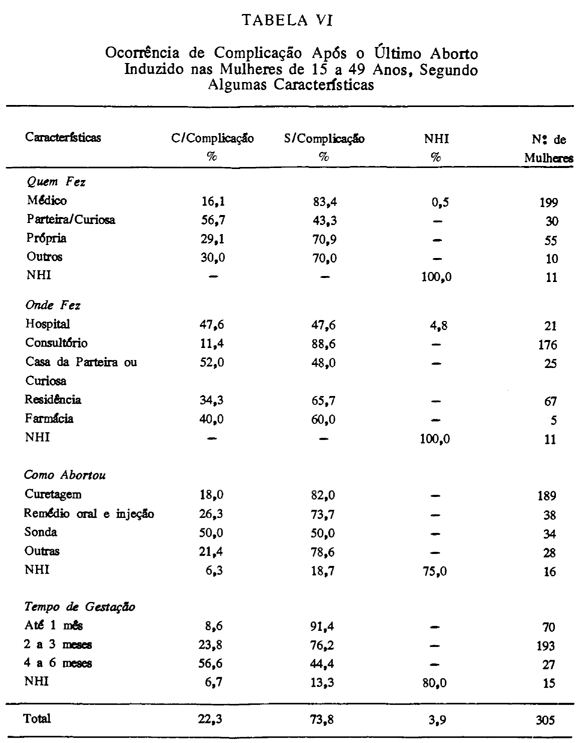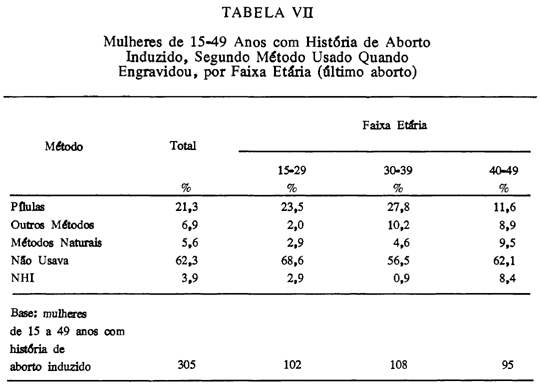This paper examines the practice of abortion, especially induced abortion among low income women. The discussion is based on survey data collected between 1984 and 1985 in seven slum communities (favelas) situated in the metropolitan area of Rio de Janeiro, Brazil. Despite restrictive law, induced abortion is extremely frequent. Among married women 21.4 per cent reported experience of induced abortion. Most abortions were performed by physicians, however the quality of care of these procedures can be questioned since almost all induced abortions are illegal there is no possible supervision by health authorities. The incidence of post-abortion complication is very high, especially for those performed by traditional midwifes or by the woman herself. More than 60 per cent of the women were not using contraception at the time of pregnancy. About, 21 per cent reported that they were using the pill. Such a high pill failure rate is inacceptable, and probably was related to incorrect use. This points to the need for a better access to family planning care within the health services. The consequences of the restrictive abortion laws in Brazil are also discussed. Restrictions that in practice prove to have little impact on the practice of induced abortion, appear to be very effective in brooding even more the social-economic inequalities.








